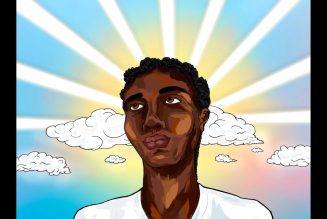In October 1988, Angie Roloff and her husband Ron opened Strictly Discs in Madison, Wisconsin, after Ron left a career in the biomedical research field to pursue his love of music full time. Nearly 31 years later, the couple made the difficult decision to shutter in-store operations due to COVID-19, roughly a week before Governor Tony Evers forced a mandatory shutdown of all non-essential businesses. Now that the Wisconsin Supreme Court has overturned Evers’ stay-at-home order — ruling it “unlawful” and “unenforceable” — the Roloffs and their employees have reopened Strictly Discs in a limited capacity.
As part of Billboard’s efforts to best cover the coronavirus pandemic and its impacts on the music industry, we will be speaking with Roloff regularly` to chronicle her experience throughout the crisis. (Read the last installment here and see the full series here.)
Has anything significant changed for you since we last spoke?
As far as how [the coronavirus is] trending in our area, not particularly, except that things in our county have been looking favorable. And I think we’re all just kind of eyeing the return of the student population and what the University [of Wisconsin-Madison] does as having probably the next big impact on how our local community fares.
I heard about that. I think like 30-something percent of classes will be in person and the rest online, is that right?
As much online as I think is feasible, and smaller lectures in person in large rooms. But there’ll be a large influx of the student population in the next two to three weeks. That’s the age group where we’ve seen the greatest increase in cases, so we’re hopeful that that doesn’t continue when we have more of that population here.
I guess on the one hand, it’s probably good for business to have those college students back in town, and on the other, you obviously want people to be safe. It’s sort of a double edged sword.
It’s times like this where it makes you feel old and very removed from that population, but not so far removed that you don’t remember feeling invincible. I can relate to how some of those students want to continue with their social life and stay out and about. So I know that’s going to be a factor. Thankfully at this point, the bars are still closed in Madison, so that may be beneficial. But I still think there’ll be plenty of gatherings of college age students in town.
Anything new on the Record Store Day front?
We’re still moving forward with our “RSD To-Go” model. We’re going to roll that out with all of the details for our customers this week, because they’re inquiring about how we’re going to handle it and how we’re going to keep everybody safe. We’re still gonna do the curbside service for everybody on those titles. And once we’ve put those things in people’s hands and there aren’t people waiting, then we would reopen the store for regular Saturday business.
It’s being spread out over three days this year, right? So I imagine that’s good for you.
I think it’s a good decision to spread it out. I just want to make sure that we can still manage the traffic flow that day. The first date, the August date [Aug. 29], with just the way the releases fell, is the biggest date. There are 200 releases for the first drop date, and then just about 100 for the second two [Sept. 26 and Oct. 24]. So we will have a little baptism by fire to see how this goes.
We’re past the midway point of 2020. How would you say business has been in the first half of the year compared with 2019?
We closed on the 16th of March, so we lost the second half of that month. But we maintained a lot more business while we were closed than we feared. That was a really positive side effect of being closed, is just the amount of support that we got during that time. So when you take the Record Store Day piece out — which is always hard, because it varies from year to year — we’re probably only about 10% down for the year. So we’ll see what happens with these Record Store Day drop dates. I know that they’ve got a strong slate of releases planned for Black Friday and, you know, fingers crossed that things continue in the direction that we are right now and we can finish the year strong.
Is there anything else you wanted to mention?
It’s kind of a topic on a broader, higher level right now, but one thing that is really important for independent record stores is the U.S. Postal Service. Some of the discussions about the future of that organization are really important to us as a group for our survival, and they seem to be kind of in a political quagmire that we don’t normally associate with the mail.
[Note: The U.S. Postal Service, which had been in financial trouble even before the pandemic, is facing an existential threat due to COVID-19. Recent efforts by the USPS to receive billions in aid from Congress has been thwarted by President Donald Trump, who is pushing to privatize the agency.]
How would that affect your business?
If something were to drastically change with the organization, it would be debilitating. We ship anywhere between 60 and 100 packages a day, and most of those are media mail. There is no alternative for an affordable way to move records within this country, so it would be it would be devastating.











